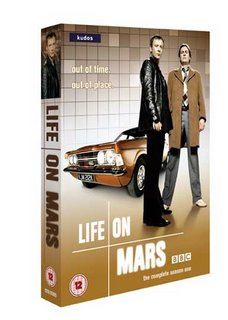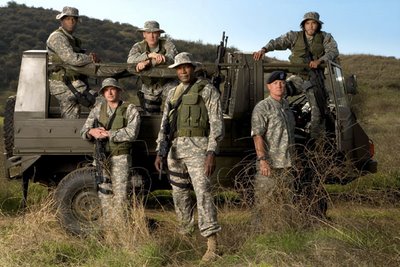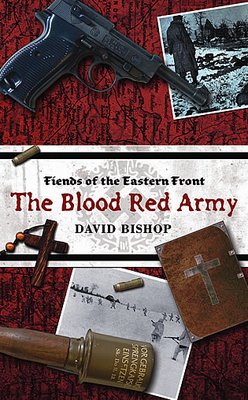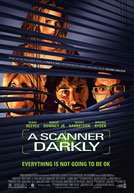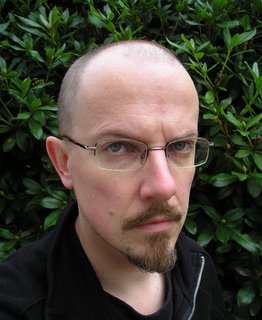A few days ago, a friend of a friend sent an email asking for advice about breaking into publishing as a novelist. Below is the essence of their request and my reply...
For some years I have wanted to be a writer and although my first novel has done the rounds and come up empty, I still write. I'm working on another novel now and I would also like to do some licensed fiction. I hope you might be able to give me some advice, tips, names, etc. on where to go to find out more about this work.
I would greatly appreciate any help you could give me on the subject and thank you for taking the time to read this email, I'm sure you get many asking exactly the same thing.
++++++++++++++++++++++++++++++++++++++++++++++
Well, the first question you need to ask yourself is why do you want to write novels? Most people’s answers tend to fall into one [or more] of five categories:-
• they want to make a lot of money
• they want to be famous
• they want to have fun by working with words
• they want to get published, see their name on a book cover
• they want to write, they need to write, they have to write – it’s a compulsion
If you want to make a lot of money, give up now. For every story you read about new authors securing six figures advances for their debut novel, there are literally tens of thousands of other scribes who never get published or who never make enough money from their writing to do it fulltime. A survey by the Society of Authors among its members put the annual average gross income at around 8000 pounds. Me, I make three to four times that much each year, so that means there must be two or three other society members making nothing each year to balance me out. You can make a decent living from writing, but rare is the author who makes that living from novels alone. Most have other strings to their bow. I also write radio plays, non-fiction books and articles, audio dramas, comic strips and short stories. Others teach creative writing, or become writers in residence or venture into other areas of writing. So, don’t expect to make a fortune from your writing – unless you last name is Rowling or Rankin.

If you want to be famous, writing novels is not the way to do it, either. There are more than 100,000 new books published in Britain every year. Obviously, they’re not all novels, but that’s a hell of a lot of competition. Adventure, excitement – an novelist craves not these things.
Wanting to have fun with words is a great motivation for writing, perhaps the purest of urges. That doesn’t mean you have to become a novelist, but if you don’t have a passion for writing and an enthusiasm for enjoying the process of writing, you’ll be a very unhappy scribe. If nothing else, writing novels generally involves a lot of typing. [Top Tip #1 – if you can’t touch type already, enrol in a night class that teaches it. Being able to type with all ten fingers is one of the most useful skills any novelist can have.]
Getting published and seeing your name in great is a thrill – the first time. Excuse the pun, but the novelty soon wears off. Getting published sadly does not guarantee literary immortality. I had four novels published in the 1990s, none of them remain in print. The internet and print on demand can help you sustain the life of your backlist, but that’s another discussion. Here we’re talking about getting started, not staying in print.
The best reason you can have for being a novelist is that you have no choice: you’re wired that way. It’s been a nagging urge at the back of your thoughts for years, even decades. You feel you’ve got a book in you, and more. You have to write, you get a little crazy when you’re not writing. You’ll need that slightly obsessive drive to write if you’re going to make anything more than a passing hobby of writing, especially novels.
Now, if you’ve already completed a novel, you’re already ahead of 90% of would-be writers. The vast majority of people believe they have a novel in them, but never start it. Some do start, but don’t have the stamina to finish it. [Top Tip #2 – stamina in crucial for novelists. Me, I’m a sprint writer. I am to produce 4000 words a day when I’m bashing out a first draft. Cutting and polishing is where the raw material becomes worth reading, but that’s second draft. Even producing 4000 words a day, five days a week, it still takes a month to produce the first draft of a relatively short novel. If you’re only able to write part-time, it’ll take a lot longer. Stamina is crucial.]
So, you’ve completed a novel and tried shopping it around without success. Why didn’t anyone bite? First of all, your novel might simply not be good enough – not a pleasant notion, but it’s a possibility. It’s hard for you to objective about that, and the same applies to your family and friends. If you can find one locally, join a writers’ group and get some of the members to offer you feedback. Don’t ask them for suggestions on how to make the novel better. You have to train them to give feedback by asking questions. Why did that happen? Why didn’t that character do this? Why do that take so many chapters? DON’T answer their questions, don’t get into a debate, and don’t argue with them – these people are doing you a favour, after all! Instead, take a note of their questions.
Once you’ve got feedback from three different people, look at the questions they asked. What questions came up time and time again? Chances are, if two or three people from those giving you feedback identify the same thing, it’s a flaw in your novel. If only person strongly objects to a character, a choice or whatever, you can take their opinion with a pinch of salt. Personal taste is always an issue. Ultimately, this is your novel, not their novel – you have final say about what stays, what goes and what changes.
Let’s say your novel is good enough to get published – why didn’t it find a buyer? Depends on whom you sent the novel to and how you marketed yourself as a potential novelist. There’s a lot I could tell you about this, but the best thing you can do is some market research of your own. There’s two books I strongly recommend you buy and read in depth. From Pitch to Publication by Carole Blake [ISBN 0333714350] is a brilliant guide to getting yourself published. It’s particularly good for writers of commercial fiction, but most of the advice the book offers is as applicable in other areas. The other book is The Writers’ Handbook by Barry Turner [the 2006 edition’s ISBN is 1405041544, the next edition is due out in August], a great guide to the ins and out of the industry, replete with contact names and addresses for agents, editors and publishers.

You might want to take a workshop on marketing yourself as an author. These are often put on at book festivals and literary festivals, such as the Edinburgh International Book Festival. Find out where your nearest book festival is and check out what’s on offer there. I did a workshop with Alison Baverstock and she offered some great tips on how to make yourself a more attractive prospect for publishes and editors. She’s got a good book on the subject too, Marketing Your Book: An Author’s Guide [ISBN 0713659653]. This may seem like a lot of homework, but if you want to sell your book you have to know your market and whom to target with your work.
Licensed fiction: I know quite a few writers with great careers who got their start writing licensed fiction. Paul Cornell wrote the Father’s Day episode of Doctor Who screened on BBC1 last year – his first book was a licensed fiction tome. There are many other examples, but I won’t bore you with those. In the 1990s Virgin Books gave a start to dozens and dozens of previously unpublished authors via the Doctor Who range of novels. They paid a decent advance, you kept the copyright on your work and royalties on sales, too.
Alas, the licensed fiction market has gotten somewhat more cutthroat in recent years. The BBC reclaimed the Doctor Who published licence in 1997 and that book range is pretty much a closed shop at present. Those companies in Britain who are publishing licensed fiction have less attractive terms. The likes of Black Flame, the Black Library and new imprint Abaddon Books all expect authors to surrender their copyright, pay them a flat fee and there’s little or no prospect of royalties either. Crucially, they will look at submissions from previously unpublished scribes. So what else are the advantages of going down this route? You get a novel published with your name on the cover. That can be valuable in proving to other publishers you have the ability to get a book in print and shows you’ve been through the filtering process with another publishing house.
In other words, it’s a start and you get some money for your efforts – but not much more.
If you want to write for a US publisher of licensed fiction, such as the Star Trek at Simon and Schuster or the Star Wars range at Del Rey Books, you’ve got a much harder road ahead of you. All I can say there is… good luck. Email and the internet should make the Atlantic an invisible barrier, but the reality is you’re fighting against 250 million more wannabes if you’re trying to crack the US market. Yes, it can be done, but it’s harder.
If you want some contact names and email addresses, you can begin with Christian Dunn at Black Flame [ChristianD@games-workshop.co.uk ] and Jonathan Oliver at Abaddon [jonathan.oliver@Rebellion.co.uk ]. They’re both very busy men, so they may take a while to respond. Send them a polite email, expressing interest in their ranges and asking for their writer guidelines. Don’t bore them with a lot of biographical detail about you. Right now, all you want to know if what they’re looking for. After that, it’s up to you what you do with that information…
Best of luck!
David Bishop.
 The new issue of Doctor Who Magazine [#368, on sale now] includes a review of Buried Secrets, the first of the four-part Sarah Jane Smith audio drama series I've written. Here's what Matt Michael thought of the story...
The new issue of Doctor Who Magazine [#368, on sale now] includes a review of Buried Secrets, the first of the four-part Sarah Jane Smith audio drama series I've written. Here's what Matt Michael thought of the story...



